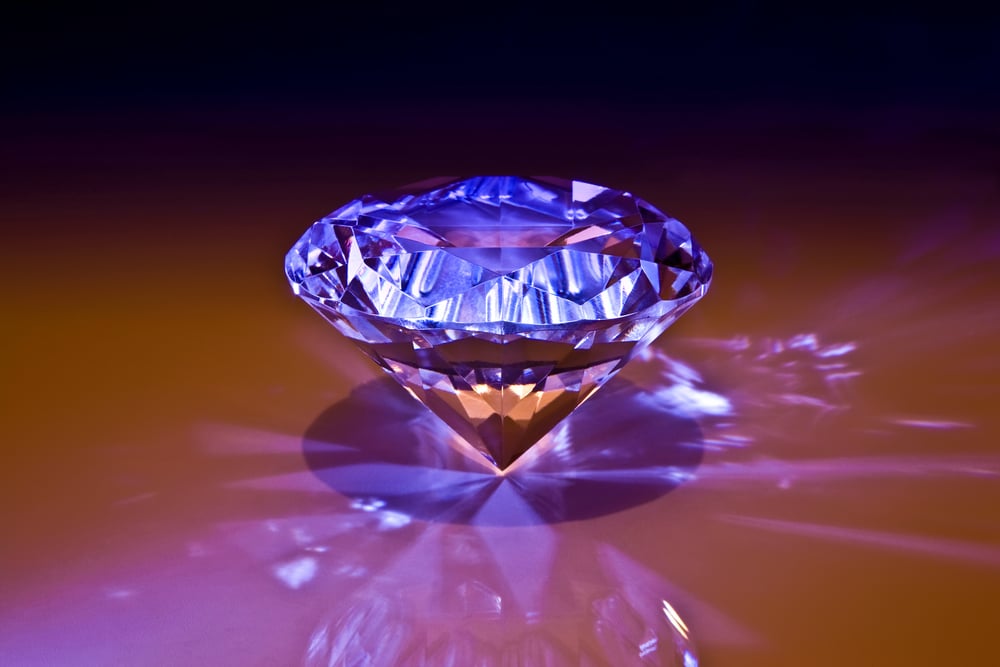
23 Words That Mean “Unique” In English
“Unique” is a great word.
It also has three slightly different meanings.
In this post, I will show you how to use “unique” correctly. I will also share 23 words that are alternatives (words that are similar but slightly different) to “unique.”
Contents
Download: This blog post is available as a convenient and portable PDF that you can take anywhere. Click here to get a copy. (Download)
Unique as a Blue Diamond
Blue diamonds are beautiful. If you happen to dig one up, you will be rich. That is because these gems (precious or valuable stones) are worth tens of thousands of dollars.
For example, a huge (big) 29.6-carat (measurement for precious stones) blue diamond was discovered in a South African mine in 2014. At the time, it was the largest in the world.
Therefore, this diamond is “unique” in that it is the best there is.
Here are alternative words for a blue diamond kind of “unique.”
Exclusive
“Exclusive” means “only for a certain group of (usually high-class) people.”
Examples include exclusive seats at the theater or on an airplane.
Rare
“Rare” means “something that does not happen or is not found very often.”
You can say the blue diamond mentioned earlier was rare. After all, you do not often find diamonds of that size.
Be careful though. At a restaurant, “rare” also means “to have your steak barely cooked.”
Spectacular
“Spectacular” is similar to the word “impressive,” except it implies (means) that something is even greater.
Extravagant (very fancy) movie sets with lots of lights and glitter might be called spectacular.
Unequaled
“Unequaled” means exactly what it sounds like: there is no equal.
If you have seen the most beautiful woman in the world, you can say her beauty is unequaled.
Matchless
“Matchless” means something is so good that nothing can match it. Remember that the suffix “-less” means “to lack or not have something.”
Going back to our last example, you can also say the woman’s beauty is matchless.
Unsurpassed
“Surpass” means to go farther, so “unsurpassed” means that it is not possible to go farther (than what is to be surpassed). Like “-less,” the prefix “un-” implies a lack of the quality that follows the prefix.
You can use unsurpassed to describe, for example, an athlete who has won a championship several years in a row.
Unrivaled
“Rival” means to compete to be the winner. “Unrivaled” means nothing else can beat it. Again, note the use of the prefix “un-.”
Using our last example, the athlete who has a long championship winning streak can also be described as unrivaled.
Incomparable
“Comparable” means something is like or similar to another. Incomparable means nothing can be compared to it. (The prefix “in-” has a similar meaning as the prefix “un-.”)
Let us say you have a loving relationship with someone. That relationship looks better or is unlike others you have seen. You can therefore say your bond with that person is incomparable.
Unique Like an Odd Duck
An “odd duck” is an idiom that implies uniqueness in a not-so-positive way. It is not exactly bad, but it is not always a compliment either.
You can understand this more clearly in the way the word is said.
Picture this: A guy shows up at your office wearing plaid (tile or square patterned) shorts, a spotted tie and a fuzzy (covered in fuzz or soft material) hat.
No one else looks like he does. He does not fit in at work and he does not seem to care.
You look at him, tilt (move to the side) your head, smile slightly to your friend and say, “Well, he’s certainly… unique.”
You are not calling the guy in the fuzzy hat a bad person. You are simply saying that he stands out in some way—like an odd duck!
Whether him being an “odd duck” is good or bad depends on which of the following words you use.
Atypical
“Atypical” means something is not typical or normal. Here, the prefix “a-” suggests that there is a lack of the word that follows it (much like “un-” and “in-” in our earlier examples).
You do not normally use “atypical” in everyday conversations. It is usually a formal or scientific way of describing something, like an atypical disease.
Different
“Different” comes from “differ,” which means that something is not like the others. Unlike “atypical,” “different” is something you normally hear every day.
If you see a shirt in a store that is brightly colored and everything next to it looks plain (ordinary), you can say that shirt is different.
Curious
“Curious” can mean the same as “different.” It can also mean something is not what might be expected.
You can say the details of a crime are curious.
Be careful: “Curious” also means “eager to investigate.”
Bizarre
If you wanted to describe the guy we talked about earlier as being “over the top” different, you might call him “bizarre.” You are saying he is so different that he is just funny.
You might call some Mardi Gras costumes bizarre.
Unconventional
“Unconventional” means something does not follow the norm.
For example, Matthais Jeske is a DJ and actor who slicks back his hair with gel, wears horn-rimmed glasses and goes by the nickname “Mister 1960.” He also won a Broadcast Education Association award for his on-air personality.
Most people his age wear T-shirts and blue jeans. On the other hand, he wears skinny ties. As a result, some people might call him unconventional.
Unusual
Another word you can use for Jeske is “unusual.” Can you guess what the word means from the prefix “un-“?
That’s right: If something or someone is unusual, it means there is something about that thing or person that is not usual or is different.
Weird
“Unconventional” and “unusual” are usually neutral words—meaning they are neither positive nor negative.
“Weird,” on the other hand, can have a negative meaning. Sometimes, it can be used in an ironic (the opposite of what is expected) way to mean interesting.
That means you can describe Jeske’s fashion sense as weird—whether you agree with his taste or not.
Odd
Like “weird,” “odd” has a slightly negative meaning. To call someone odd means their behavior makes you feel uncomfortable. Not terribly uncomfortable, just a little bit so.
If you are not completely on board (in agreement) with Jeske’s sartorial (clothing) choices, you can call him odd.
Strange
“Strange” is another word that has a slightly negative meaning. It means something does not make sense.
For example, imagine that your friend called you at 11 PM. Imagine that, the next morning, you talk to your friend about the incident (event, something that happened). Your friend then says they never made the call. The appropriate (correct or proper) response to this would be “That is strange!” (And possibly also terrifying (scary)!)
Quirky
“Quirky” has a slightly more positive meaning than “weird,” “odd” and “strange.” It can mean something stands out in a charming (attractive, pleasant) way.
You can say Jeske (from our earlier example) is quirky. Yes, he is an odd duck, but he also drives a cool car (a ’60 Chevy Impala). How many people can say they have cool cars?
Freak
So far, all of the above alternatives to “unique” range from mildly negative to slightly positive.
Sometimes, “unique” can refer to an extremely bad or unexpected experience. That is when you use the word “freak,” as in “freak accident.”
For example, a dancer in Chicago died when a metal ring fell off on stage and struck him in the head. That is a freak accident.
Important: Please do not describe a person with a disability or physical deformity as a freak. You will offend (hurt or anger) the person and be seen as insensitive (unkind).
Unique as One and Only
“Unique” can be used to say that there is nothing like a certain something or someone. You cannot find anything like it if you searched the universe (or, at least, it would seem that way).
Some of the words you can use instead of “unique” to say that something is the “one and only” are:
Distinctive
“Distinctive” means something has an appealing (pleasant) quality different from others.
For example, The Guardian described Bubba Watson’s golfing style as unique. The writer even called his style “Bubba golf.” The way Watson plays the game is based on how players in the 1960s swung their clubs and held their feet. It is distinctive from the way other players now play golf.
Singular
You might also say that Bubba Watson was “singular,” meaning an individual thing or person is better than expected.
Novel
Sometimes, “unique” can mean new or “novel.”
For example, scientists in Australia found a novel way to study dinosaur tracks on the rugged western coastline. Instead of relying (depending) on their usual equipment, they had the native Goolarabooloo people help them find these tracks.
Original
“Unique” can also mean “original” or something you come up with on your own.
If you are a television producer, for example, and you want to put out shows that (1) you produce yourself and (2) you are not rerunning, then those shows are original.
Learning synonyms is a great way to improve your English as an advanced learner.
Be sure to keep an eye out (look) for these new words in the news, ESL podcasts and your favorite sitcoms. Subtitles on Netflix movies and FluentU English language videos also make it easier to find unique vocabulary and practice them.
FluentU takes authentic videos—like music videos, movie trailers, news and inspiring talks—and turns them into personalized language learning lessons.
You can try FluentU for free for 2 weeks. Check out the website or download the iOS app or Android app.
P.S. Click here to take advantage of our current sale! (Expires at the end of this month.)

Now, try to use some of these words in conversation!
Download: This blog post is available as a convenient and portable PDF that you can take anywhere. Click here to get a copy. (Download)
And One More Thing...
If you like learning English through movies and online media, you should also check out FluentU. FluentU lets you learn English from popular talk shows, catchy music videos and funny commercials, as you can see here:
The FluentU app and website makes it really easy to watch English videos. There are captions that are interactive. That means you can tap on any word to see an image, definition, and useful examples.
For example, when you tap on the word "searching," you see this:
Learn all the vocabulary in any video with quizzes. Swipe left or right to see more examples for the word you’re learning.

FluentU helps you learn fast with useful questions and multiple examples. Learn more.
The best part? FluentU remembers the vocabulary that you’re learning. It gives you extra practice with difficult words—and reminds you when it’s time to review what you’ve learned. You have a truly personalized experience.
Start using the FluentU website on your computer or tablet or, better yet, download the FluentU app from the iTunes or Google Play store. Click here to take advantage of our current sale! (Expires at the end of this month.)








